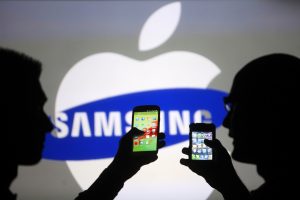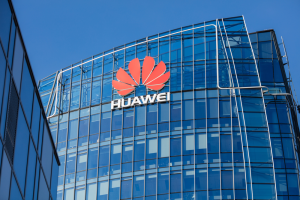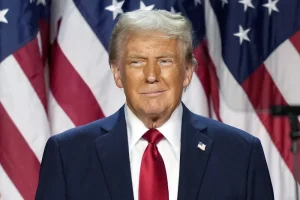Allowing the globe to rapidly like, share and manipulate others’ content, the internet comes with several advantages, yet challenges alike. The IP sector is no different.
How much of an issue is copyright infringement now, in comparison to a decade ago, when the use of the internet was not as wide as it is today?
The most recent development in EU regulations on copyright has proven to be a very strict approach to copyright infringement.
Copyright infringement is by all means a serious legal issue. The internet, in all its glory, has complicated copyright protection to a great extent, given that people nowadays are able to share content throughout social media and the internet so easily. At the same time, however, copyright laws and regulations are applicable whether the infringement is taking place on the internet or not. What becomes more complicated through the use of the internet is the implementation of copyright law, given the transparent nature of the internet.
The most recent development in EU regulations on copyright has proven to be a very strict approach to copyright infringement. On 26th March 2019, the revised proposal for amendment of the European Union Directive on Copyright in the Digital Single Market (“EU Copyright Directive”) was approved by the European Council. The EU Copyright Directive is designed to limit how copyrighted content is shared on online platforms. The new EU Copyright Directive passed by the European Council has been a controversial development, especially concerning Article 11 and Article 13 (former Articles 15 and 17 respectively).
Article 13 states that “Online content sharing service providers and right holders shall cooperate in good faith in order to ensure that unauthorised protected works or other subject matter are not available on their services.” This means that major companies such as Youtube and Facebook will be forced to remove any content if it infringes on copyright and the responsibility is on the company in case of infringement.
Contrary to the EU Directive, Section 230 of the Communications Decency Act of the United States, helps guarantee free speech on the internet with the provision that "No provider or user of an interactive computer service shall be treated as the publisher or speaker of any information provided by another information content provider", a provision which gives legal protection to online platforms.
There are a few exclusions from the Directive, specifically memes or GIFs, which are a form of communication through the use of scenes of movies and other video or image material.
Article 11 states that news publishers “may obtain fair and proportionate remuneration for the digital use of their press publications by information society service providers”, namely news platforms, such as Google News. Therefore, according to the Directive, journalists must get a share of any copyright-related profit gained by their news publisher. Even though this does not apply to private and non-commercial use of press publications, the introduction of this provision raises concerns on implementation and practicality.
The amendments approved constitute a major change in the way data and content is presented online, especially since key internet platforms will now be liable for content that users upload, and they must in some way filter content in order to prevent copyright infringement. In saying that, the new directive amendments are vague in that there is no indication on how internet platforms may achieve the filtering process, something which is a great task especially given the large number of users. Adding to the vagueness of the amendment of the Directive, is the fact that hyperlinks to news articles accompanied by “individual words or very short extracts” are permitted to be shared freely without any issue of infringement. There are a few exclusions from the Directive, specifically memes or GIFs, which are a form of communication through the use of scenes of movies and other video or image material.
What is important to have in mind is that it does not matter whether the infringement takes place over the internet or not; the elements which need to be satisfied for trademark infringement remain the same.
What are inappropriate allegations of trademark infringement when regarding the internet?
Even though the internet operates as a world wide web and content may be accessed by the whole world, trademark infringement is usually straightforward in the sense that a trademark will only be considered to be infringed if the alleged trademark or similar is used in such a way so as to create a likelihood of confusion as to the origin of the goods or services and the possibility of an association between the two trademarks, or used on goods and services which are not similar to those of the original trademark, but benefitting from the registered trademark’s existing reputation and gaining an unfair advantage. In order for infringement to be valid, certain conditions must be satisfied, such as the similarity in the overall impression created by the two trademarks, any evidence of actual confusion by consumers and the physical proximity of the goods in the marketplace.
An example of confusion in relation to trademark infringement was examined in various case law in relation to online marketplace platforms. For example, in the case Lancome v. eBay the Brussels Commercial Court refused to hold eBay liable for counterfeit cosmetic products sold through its website. In contrast, in the case of L’Oréal v eBay, it was stated that eBay was held liable for infringing activity taking place on its online marketplace. Specifically, the Court ruled that an owner of a trademark may prevent an online marketplace operator from advertising goods offered for sale on the marketplace bearing that specific trademark, in cases where the advertising of the product is not transparent as to the origin of the product.
What is important to have in mind is that it does not matter whether the infringement takes place over the internet or not; the elements which need to be satisfied for trademark infringement remain the same. However, the peculiarities and the nature of the internet may make it difficult to prove in certain cases that the requirements are satisfied. This is something which always depends on the circumstances of each case.
Therefore, as lawyers, we always advise our clients who wish to protect their work to proceed with registering their work from the beginning.
Trademark infringement also faces issues relating to jurisdiction. In the EU, the ECJ states that generally, the only courts that are in the position to assess whether or not an action is infringing on the rights of a national trademark are the courts of the Member State in which the trademark is protected. Therefore, the issue lies in determining jurisdiction in terms of the location of the expected damage, versus the location where the trademark in question is registered.
Despite the above, trademark infringement is a lot easier to prove than the tort of passing off, mainly due to the fact that trademark infringement is governed by statutory law, whereas passing off is governed by common law; also, trademark infringement deals with registered rights, whereas passing off deals with unregistered rights. Proving passing off means that one needs to show goodwill, misrepresentation by the other party and that the misrepresentation has caused damage to the goodwill. Therefore, as lawyers, we always advise our clients who wish to protect their work to proceed with registering their work from the beginning.
It is important that each owner of the copyright has in place all proof relating to their creation, including the progression of the work, ideas, drafts, rough notes, sketches etc., which will serve as evidence that they are truly the creators of the specific art.
What options are there for businesses wanting to protect their assets online?
In order for a person’s work to be eligible for copyright protection, it should be original and created by them individually; it must exist in some physical form for any period of time and the work must be classified as creative.
In Cyprus, as in many other countries, no official registry exists, and no registration requirements must be met in relation to such works. The protection of the work simply exists from the date of its creation, namely that the creator will have copyright protection once the aforementioned criteria for protection are met.
It is important that each owner of the copyright has in place all proof relating to their creation, including the progression of the work, ideas, drafts, rough notes, sketches etc., which will serve as evidence that they are truly the creators of the specific art. To help protect the copyrighted work, it is advisable to mark the work with the International copyright symbol © as well as the owner’s name and date of publication of such works accompanied by the phrase “all rights reserved”. It will also indicate who the owner was at that time in case it is then necessary to approach them for asking permission to use the work.
Additionally, the owner could send their lawyer a copy of their work by special delivery post, which gives a clear date stamp on the envelope, leaving the envelope unopened on its return. It is important to note that this does not prove that a work is original or created by the creator, but it may be useful to be able to show the court that the work was in the owner’s possession at a particular date.
Owners of text-based publications may also apply for an ISBN (International Standard Book Number), which is a product identifier used to identify the registrant as well as the specific title, edition and format. Even though it does not convey any form of legal or copyright protection, the ISBN is used to identify that a particular piece of work belongs to a particular creator.
With trademarks and patents not necessarily being an international application, what issues does the worldwide web present for businesses that expand at a quicker rate than predicted?
The advice we provide to each client who would like to register a patent or a trademark is to proceed with an international application and/or an EU application. In this way, the patent or trademark is registered to a large number of countries at the same time and there is more security in case of infringement. Patent applications include the EPC which includes 38 European countries automatically and the PCT international application which covers most of the industrialised world. A trademark international application is made using the Madrid System and covers protection in up to 120 countries.
Further, an advantage is that upon filing the first application, the application is placed in a theoretical queue in all other countries. The applicant may decide within twelve months to file applications in other countries and these further applications will be treated as if they were filed on the same date as the first one, provided they relate to the same invention. In this way, the applicant claims priority from their first application.
There are still issues which remain unclear in relation to private international law and jurisdiction in cases of infringement over the internet, however, one may expect new issues to arise in the upcoming years in relation to among others, new methods of selling products and advertising.
What would be your advice to businesses and lawyers working on IP in this area? What should they be preparing for in the upcoming years?
It is difficult to determine future developments in this field since, as has been proved from the recent EU Copyright Directive which was passed this year, the laws and regulations in relation to intellectual property rights seem to be forever adapting to the developments in technology and the internet.
It is important for everyone involved in the field of intellectual property to be well-informed at all times in relation to the provisions governing intellectual property law in order to be able to secure the rights of your business and as a lawyer to be able to advise your client accordingly.
There are still issues which remain unclear in relation to private international law and jurisdiction in cases of infringement over the internet, however, one may expect new issues to arise in the upcoming years in relation to among others, new methods of selling products and advertising. Similarly, practices such as cybersquatting and the use of metatags are ongoing cyber-problems for which limited legislation has been introduced and usually only protect distinctive or famous enough trademarks to warrant protection.
Yiannos Georgiades
Managing Director
Y. GEORGIADES & ASSOCIATES LLC
2, Ayios Pavlos & Kadmos Street
Wisdom Tower, 3rd Floor
1105 Nicosia
P.O.Box 24144, 1701 Nicosia
Tel: +357 22819292
My name is Yiannos Georgiades and I am the Managing Director and founder of the law firm Y. Georgiades & Associates LLC, established in 1992 in Nicosia, Cyprus. I am a member of the Bar of England and Wales (Honourable Society of Gray's Inn), Cyprus Bar Association and the Athens Bar Association. I am the President of the Cyprus Chapter of the European Court of Arbitration, executive member of the Court and an online mediator for commercial disputes for the Chamber of Commerce of Milan, and the Vice-President of AEA International Lawyers Network. In 2017 I became the Co-founder of a business acceleration company under the name KV Kinisis Ventures Limited, a company dealing with innovation and technology and specifically companies established in Cyprus which would like to scale up in the United States.
My law firm is essentially international in outlook with approximately three-quarters of the clientele of international origin, which also has a firm foothold in the domestic market, providing an extensive range of legal consultancy services to both Cypriot and multinational clients.




















